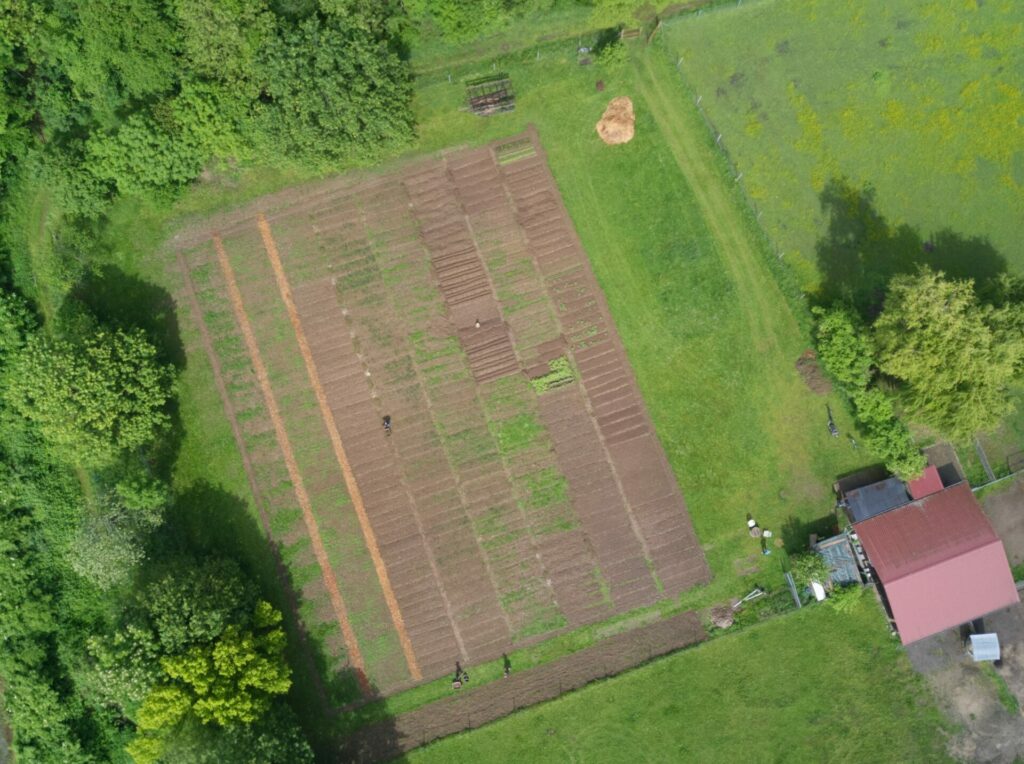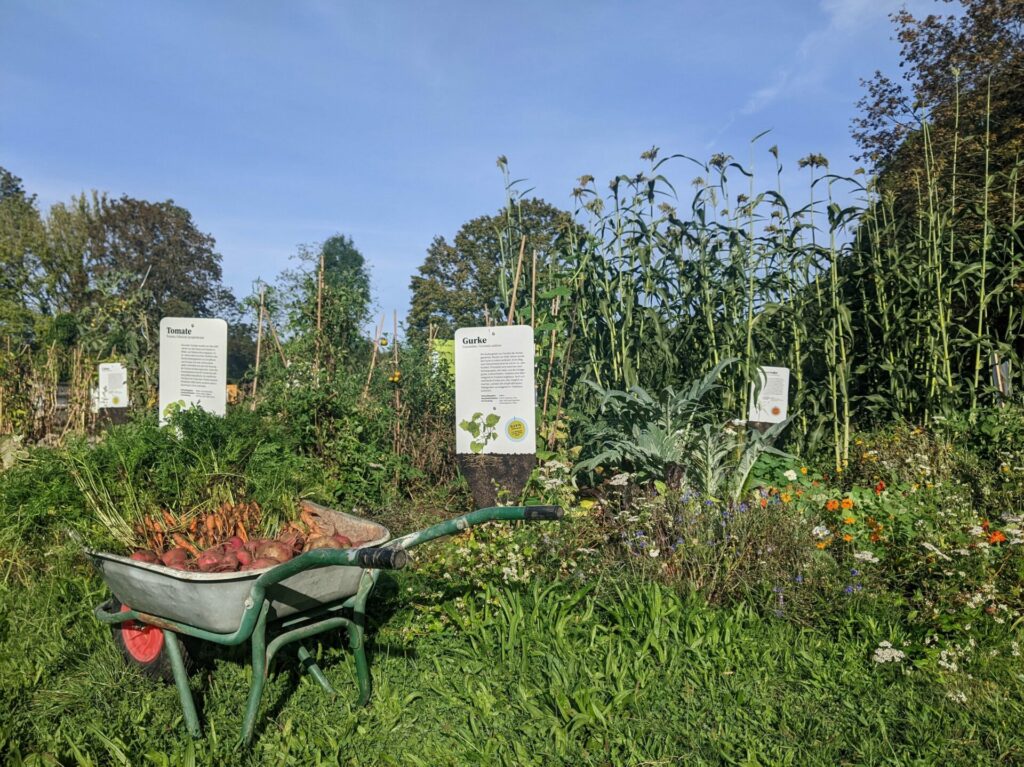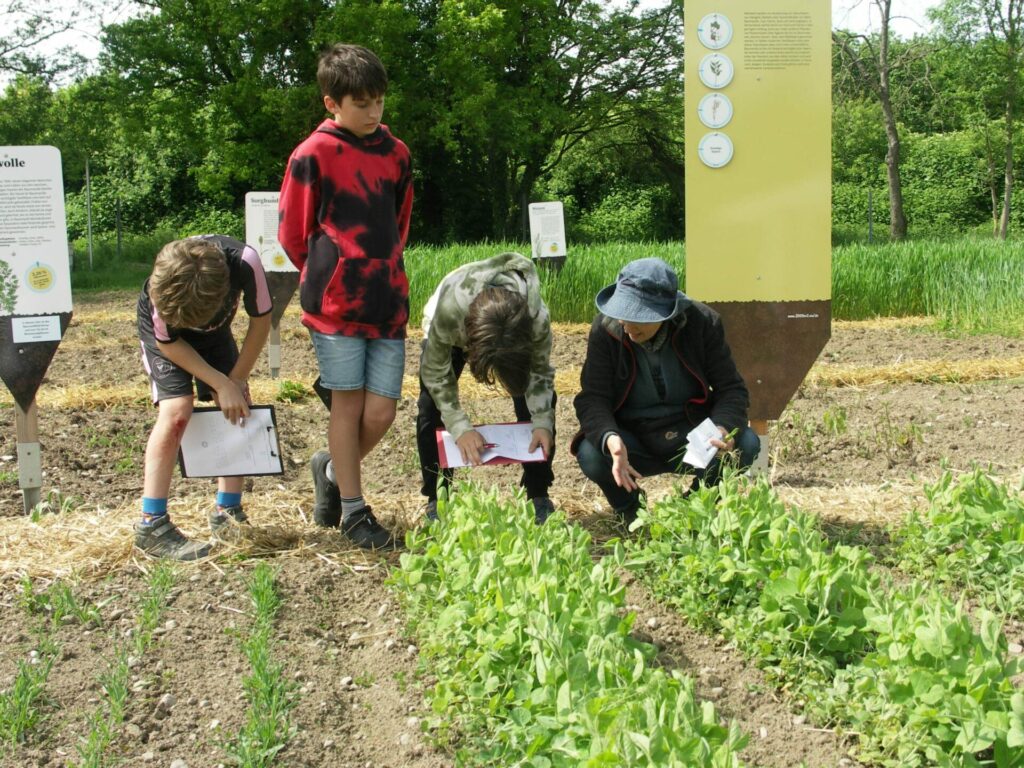Weltacker Fribourg
In Fribourg, a group of committed and motivated people have come together with the aim of raising awareness of global connections and local options for action through tangible educational programs.
What drives them is the common desire to create a place of learning on issues of global food justice with the Weltacker Fribourg. The aim is to discuss and experience individual and social approaches to greater food sovereignty. The mainly voluntary work for global food justice is supported by grassroots democratic cooperation, which is committed to a solidary, ecological, anti-racist, discrimination-sensitive and feminist approach. The team has a lot of experience in the field of “Education for Sustainable Development” (ESD) and “Global Learning”. The local team is made up of people with diverse backgrounds – from agricultural engineers and social scientists to those with practical development cooperation experience.


The Weltacker Freiburg e.V. association was founded in April 2022 and the opening of the Weltacker in the Mundenhof Nature Adventure Park was celebrated in June 2023. At 38 hectares, the Mundenhof is the largest animal enclosure in Baden-Württemberg. The spacious paddocks are home to domestic and farm animal breeds from all over the world. The Fribourg Global Field is located between the alpacas and Hinterwald cattle.
The educational programs offered by Weltacker Fribourg encourage children and young people to think and act in a sustainable way. In terms of content and methodology, they are aligned with the concept of “Education for Sustainable Development” (ESD). Pupils are invited to reflect on their everyday consumption of food and other products against the backdrop of local and global contexts. Teachers have the opportunity to visit the Weltacker with their pupils (from Year 5) from mid-June to mid-October. The following offers are available to them:
Field projects:
After an introduction to the background and aims of the Weltacker, the focus is on peas, lentils, soybeans & co. and their importance for a healthy and sustainable diet. The pupils playfully explore the world of pulses at various stations. Depending on the season, the children sow, cultivate or harvest pulses together with the Weltacker team and prepare delicious dishes, which are then enjoyed together.
Field rally:
After an exploratory tour of the world field, the pupils playfully compete against each other in teams and answer various quiz questions (at different levels depending on the grade) on the topics of food production, soil science, nutrition, biodiversity and resource use. The answers to the quiz questions can all be found on the farmland: Some are hidden in the text on the information boards in the field, for others you have to do the math or solve a puzzle.

Individual guided tours are also offered in Fribourg for interested groups of adults. With regard to aspects such as land consumption, climate-friendly nutrition, preservation of soil fertility, etc., pulses / legumes are particularly eye-catching: due to their high protein content, they are very valuable for human nutrition and through their symbiosis with nodule bacteria, legumes can fix atmospheric nitrogen, which contributes to soil fertility and reduces the need for nitrogen fertilizers produced with high energy input. With more than 18,000 species worldwide, there is enormous potential to make legumes better known and (re)establish them as a varied, tasty basis for human nutrition.
If you are in the area, why not visit the Fribourg Weltacker, meet the team and explore the field.


